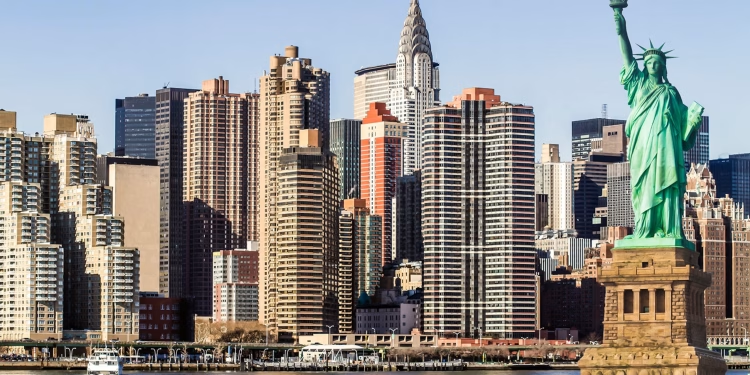Shivaji Sarkar
The New York mayoral election is being watched far beyond city limits. New York is not just the largest city in the United States; it is a cultural and financial power centre whose policy choices often ripple across national politics. The contest has become a test of whether American cities can pivot towards more people-centric governance in an era of rising inequality, unaffordability, corporate dominance, and deepening mistrust in political institutions.
Even Indians are watching how it could change city governance and bring down rental, transport, health and overall living costs in major metros – Delhi, Mumbai, Chennai, Kolkata, Bangalore, Hyderabad, some major state capitals like Lucknow, Bhubaneswar or Guwahati. No less the Europe is watching it. Apparently, inflation rocks global living conditions.
Would it happen or once again the giant companies bolstering their profits remain the concern?
Zohran Mamdani’s victory is striking because he entered the race with little funding and low name recognition, yet defeated prominent figures like former Governor Andrew Cuomo; Republican Curtis Sliwa and threw up a challenge to US President Donald Trump.
The Wall Street and the finance industry had broad misgivings about Mamdani becoming mayor, but many are hopeful he will moderate his positions or face roadblocks to hiking taxes on corporations and the wealthy.
Mamdani has emerged as a symbol of the Democratic Party’s diverse, progressive wing, pushing for free childcare, better public transit, and stronger public-sector intervention—prompting Donald Trump to denounce him as “communist” and threaten to defund New York City.
For decades, New York has symbolized both extremes of American urban life — immense wealth and stark inequality. Its next mayor will inherit challenges that sit at the very heart of US political debate: affordable housing, public transit decay, crime perception, migrant inflows, and the rising cost of living.
Cities like New York are where the real test of democracy happens — not in speeches in Washington, but in whether people can afford rent, commute safely, and access public services.
The results could influence national economic thinking. If the city pivots toward stronger public housing investments, expanded social services, and tighter regulation of price-gouging in rents and utilities, it could pressure both Democratic and Republican policymakers to rethink the role of government in ensuring basic urban stability.
However, entrenched corporate interests — from real estate lobbies to private transit contractors (a reign of Trump Towers as in India)— are not likely to step aside easily. They may resist price controls, transparency requirements, and tax reforms, triggering battles at city hall and in the courts.
So, the real shift depends not just on the winner, but on how forcefully the next mayor can challenge corporate influence in day-to-day governance.
If New York aggressively targets cost-of-living inflation — especially rent, transit, healthcare billing, and essential goods — other cities may adopt similar models. Corporations might respond in one of two ways: Adapt, by cooperating with price stability measures, improving service quality, and taking on public-private responsibility roles; orpush backlobbying state and federal allies to override local regulations, delay reforms, or shift costs to consumers in different ways.
The question is not whether corporations can fight change — they can — but whether they can afford to, as public frustration with rising urban living costs grows sharper.
President Trump has repeatedly signalled that he may cut federal funding to major Democratic-run cities, including New York, accusing them of mismanagement.
If such a defunding move is executed, New York could face significant fiscal strain, because a sizable portion of its social and civic infrastructure depends on federal grants.
The city runs the largest municipal budget in America, but it is not insulated from Washington. Bottom of Form
Funding squeeze could force the city to choose between raising local taxes or cutting critical services — both politically combustible. Defunding could shape not only NYC but also global political and social trajectory.
Will This Matter to India and Europe?
Yes, indirectly. New York is a bellwether for global investment, financial regulation, and progressive governance models. These developments shape global debates on how cities finance infrastructure, regulate housing, reform metropolitan governance, and control speculation—from US urban bonds to EU affordability rules and India’s major city reforms.
Moreover, a more socially balanced New York could become a test case for post-neoliberal urban policymaking — something India and Europe are both debating intensely.
The New York mayoral election is about far more than who governs a single city. It is a referendum on what kind of urban life the future of America will support — a future driven by markets alone, or one that centres public welfare, affordability, and inclusive development.
When New York shifts, the world’s major cities take note. Its governance experiments rarely stay local.
— INFA






































